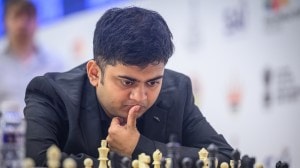The death force of Pakistan
The treatment of prisoners in Iraq’s notorious Abu Ghareb prison received worldwide condemnation. There are other Abu Gharebs around th...

The treatment of prisoners in Iraq’s notorious Abu Ghareb prison received worldwide condemnation. There are other Abu Gharebs around the world that often go unnoticed. Islamabad is one of the places in the world where torture is used as a method of interrogation despite it being illegal. Many are killed due to police torture. Deaths by police torture are explained as ‘‘heart attacks’’.
The most recent victim of torture was one Qari Noor, a suspected Al Qaeda terrorist. No one will know whether the suspect was indeed an Al Qaeda terrorist or whether his crime was commensurate with the death sentence that law enforcers handed out to him. Qari Noor was not the first to die due to police torture. Mian Arshad was tortured to death by National Accountability Bureau thugs to implicate the democratic Opposition three years back. His murder was also described as ‘‘a heart attack’’. Tenant farmers in Okara Military Farms were killed, and their bodies denied postmortem and burial by officers abusing their positions. The Human Rights Watch has called for their trials.
The regime in Islamabad talks about good governance. But it must do more than talk by taking action against officials breaking the law. Seven years back, Murtaza Bhutto was killed. A British team was stopped from full investigation. Local law enforcement used brutal methods trying to fabricate a case to suit the administration of the time. The purpose became political capital instead of bringing criminals to justice. The prime minister’s spouse was arrested to divert public opinion for political benefits.
Democracy is more than votes on Election Day. Democracy is about accountability. In order to create a just society, Islamabad needs to confront this ugly reality. A Truth and Reconciliation Commission is one way forward. Such a commission can acknowledge victims of state brutality while exposing law-breakers, allowing justice to triumph in the future. It has been admitted that the case against Asif Ali Zardari is false. Yet its proceedings continue. Several persons were tortured to implicate Zardari.
Western societies adopted the rule of law and progressed. The rule of law is not a Western prerogative. Rule of law and justice for one and all lay at the heart of Islam when it came to liberate humanity from backwardness. It is therefore all the more painful that torture, injustice and illegality are ignored in Pakistan, the second-largest Muslim country in the world. In today’s world, Muslims suffer an identity crisis. Many Muslims proudly point to the heritage of justice and tolerance. The heritage though is seemingly at odds with some Muslim societies. Yes, Islam does proclaim that the ruler and the ruled, the poor and the rich are equal in the eyes of God. However, while Islam proclaims this, the reality in Islamabad is different. It is the Western civilisations which seem to have embraced the Islamic principles of equality, justice and the importance of law. A President Bush must answer to Congress. A Prime Minister Blair is upbraided by Parliament. Issues which chief executives perceive as crucial to their nation’s security, such as the reasons for war in Iraq, are questioned and investigated publicly. India’s respect in the international community—as well as its pride in itself—comes from its continued commitment to prime minister Nehru’s vision of an independent state that conducts fair elections, smooth transitions of power and upholds the rule of law through an independent judiciary. Islamabad, beset by coup d’etats, was unable to live up to the dreams of its founder, Mohammad Ali Jinnah. But that is little excuse not to make up for lost time.
Recently one Qari Akhtar was extradited to Islamabad for interrogation. The allegation was that he conspired to murder the chief executive. In 1995, the same man and his group attempted the same conspiracy against Pakistan’s then chief executive and military high command. But he was not given an exemplary punishment. Undeterred, he returned to attempt havoc once more. And such individuals and groups will continue on their violent path. They share the belief that power flows from the gun. The former irregular forces once patronised by the state are taking on the regular forces in a power battle that both sides believe rests on force.
To counter this development, it is important to turn to the people. The people, as Pakistan’s founder emphasised, must be seen as the real power of the nation. The battle should be over hearts and minds, not over bullets, bombs and dead bodies. Presently, Taliban-style white flags fly on the Tirah valley under a local tribal chief. He styles his administration on Taliban law. According to a BBC report last month, there are ‘‘a number of private, armed organisations operating in the name of improving security’’ in parts of Pakistan’s tribal area. When questioned by the BBC, an intelligence official said that such organisations help ‘‘improve law and order in the tribal areas’’. However, if these organisations are obscurantist and faithful to the Taliban idea of governance, Islamabad can end up reaping a bitter harvest.
The recent rigging of by-elections in Thar and Attock, substantiated by independent non-governmental groups, reinforces the view that sometimes the law is irrelevant in bringing change.



- 01
- 02
- 03
- 04
- 05




























